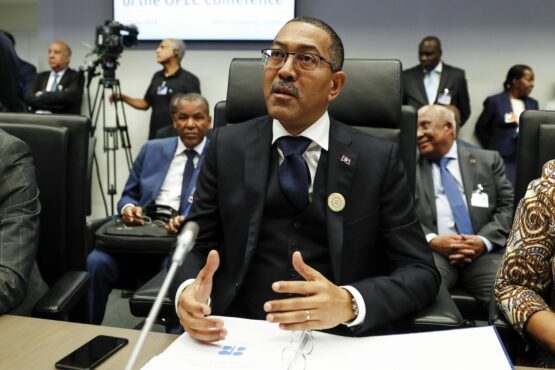Angola announced it’s leaving OPEC after 16 years of membership amid a dispute over oil production quotas, while the cartel tries to buoy global prices.
Luanda had rejected a reduced output limit imposed by the leaders of the cartel to reflect the country’s dwindling capacity. While the superficial blow to OPEC’s unity briefly weakened crude prices, the split won’t impact oil supplies from the country or the organization as a whole.
ADVERTISEMENT
CONTINUE READING BELOW
Angola’s exit will shrink the Organisation of Petroleum Exporting Countries to 12 nations at a time when it’s struggling to shore up prices, which have lost almost 20% in the past three months. Led by Saudi Arabia, the group and its allies have cut output to offset booming US production, with only partial success.
Brent crude futures initially sank 2.4% on the news, but then recouped some losses to trade near $79 a barrel.
“It neither signals an imminent rupture in OPEC+ cohesion nor jeopardizes near-term supply cuts,” said Bob McNally, president of consultants Rapidan Energy Group and a former White House official. “That said, OPEC+ has to keep its act together for the next few years.”
As OPEC+ has struggled this year, Riyadh has put more pressure on smaller members to assist its efforts — such as Angola.
The country’s clash with OPEC’s leadership emerged in June, when a deal that awarded a higher production target to the United Arab Emirates forced Luanda to accept a reduced limit for 2024 that certified its fading abilities.
Diamantino Pedro Azevedo, Angola’s petroleum minister. Image: Stefan Wermuth/Bloomberg.
“Our role in the organisation was not deemed relevant,” Angola’s Mineral Resources Minister Diamantino Azevedo said while announcing the departure after a cabinet meeting Thursday. “It was not a decision made lightly — the time has come.”
Once Africa’s biggest producer, the nation’s output has collapsed about 40% over the past eight years to around 1.14 million barrels a day as it fails to invest sufficiently in aging, deepwater oil fields, Bloomberg data shows. As a result, its production was significantly below the target agreed with its OPEC counterparts.
While Angola’s oil deposits drew corporate majors BP, Exxon Mobil Corp and Chevron Corp, its deepwater fields have declined faster than those onshore. Its tax environment also deterred investment, which was hit hard when crude prices slumped from 2014 to 2016.
The quota dispute escalated last month, forcing OPEC to delay its ministerial meeting by four days.
Angola was promised a review by external consultants, but this produced an even worse outcome for the country: OPEC imposed an even lower quota of 1.1 million barrels a day, below current output.
ADVERTISEMENT
CONTINUE READING BELOW
Shortly after the November 30 meeting concluded, Angola’s liaison to the organisation, Estevao Pedro, told Bloomberg that the country rejected the new quota and would continue to pump as much as possible.
Broken relations
Such a position is purely symbolic, as the country’s output will likely continue to decline. But Luanda’s decision to leave OPEC, first reported by state-owned Jornal de Angola, shows its relations with the group’s leadership had broken down.
“As a country, when we participate, it is to contribute, expecting results that align with our interests,” Azevedo said. “When this doesn’t occur, we become redundant, and it no longer makes sense for us to remain in the organisation.”
OPEC, headquartered in Vienna, didn’t immediately comment.
The OPEC+ alliance, which includes countries such as Russia, has pledged several output cuts over the past year to bolster prices, and thus revenues for its 23 members. But there are signs the intervention has backfired by funding rivals like American shale drillers, propelling US production to record levels.
Several other members have quit OPEC in recent years, for different reasons: Qatar, Indonesia and most recently, Ecuador. Nonetheless, OPEC has defused a similar quota disagreement with Nigeria, and Angola’s exit appears an isolated case for now.
There’s “no impact on supply forecasts as Angola is already producing at full capacity rather than limiting output due to OPEC+ quotas,” said Richard Bronze, head of geopolitics at consultant Energy Aspects. It “doesn’t directly impact quotas or production plans for other OPEC+ countries.”
© 2023 Bloomberg

